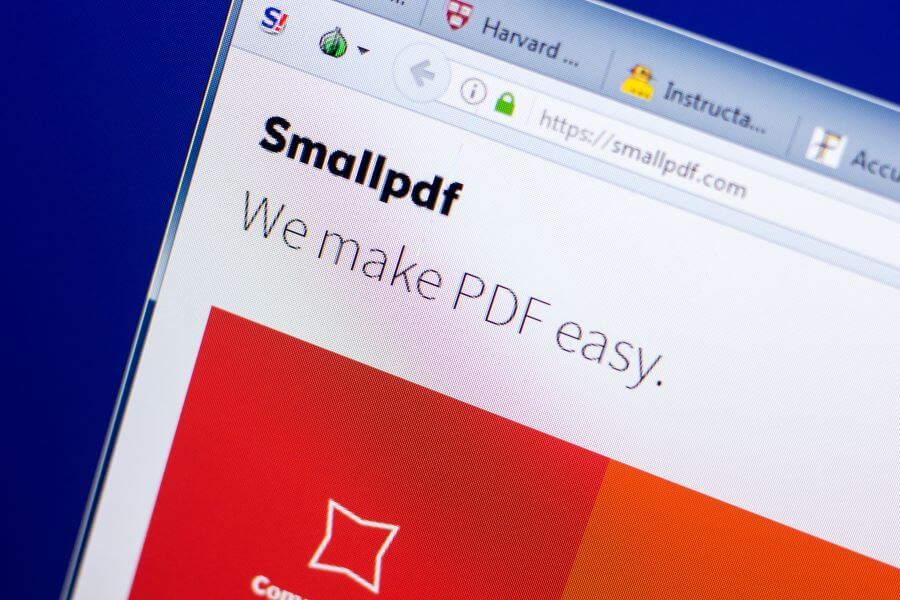
Contents
- Project Management: Asana
- Financial Management: QuickBooks
- Customer Relationship Management: HubSpot
- Communication: Slack
- Document Management: Google Drive
- Time Tracking: Toggl
- Email Marketing: Mailchimp
- Social Media Management: Hootsuite
- PDF to Word Converter: Smallpdf
- Online Scheduling: Calendly
- E-commerce Management: Shopify
- Inventory Management: Sortly
- The Bottom Line
Last Updated on 7th February 2024
Imagine you’re a juggler at a circus, with not three, but six balls in the air – that’s pretty much what running a small business feels like. From overseeing daily operations to strategizing for growth, the to-do list never ends. It’s a thrilling ride, no doubt, but also one that demands smart time management.
The good news? We’re in a golden era of technology, where a plethora of tools are available to make the life of a small business owner not just easier, but more efficient and organised. AI technology means the market is flooded with optimising tools, all saving valuable time.
Think of these tools as your digital sidekicks. They’re there to take some weight off your shoulders, automate mundane tasks, and free up your time so you can focus on the bigger picture – growing your business and nurturing your passion. From managing team projects to keeping your finances in check, there’s a tool for almost every aspect of your business.
Let’s dive deep into some of these time-saving tools for small business owners that can help you keep those juggling balls in the air effortlessly, and transform the way you run your time.

-
Project Management: Asana
Asana is not just a project management tool; it’s your virtual project coordinator to stay organised. It helps you keep track of all the moving parts of your business. With features like task assignments, deadline reminders, and progress tracking, it keeps everyone aligned on their goals.
The tool also offers various views like lists, boards, and calendar options, catering to different planning preferences. Asana can be the difference between controlled chaos and a harmonious workflow for a small business owner. Not bad for a time management software with a free plan.
There are alternative business tools to manage and allocate tasks, these include Trello, Jira and Basecamp.
-
Financial Management: QuickBooks
QuickBooks is akin to having a personal finance manager. It simplifies complex accounting tasks with its intuitive interface. From creating professional invoices to tracking sales and expenses, it does it all. QuickBooks also offers insights into your business’s financial health, helping you make informed decisions.
It predicts cashflow, and you can allow your accountant access for easy VAT returns and end of year financials. And it’s pretty easy to keep up to date using the automatic rules for allocation.
Plus, with its mobile app, you can manage your finances on the go, which is a massive plus for always-on-the-move small business owners. You can forward invoice emails on to automatically upload as documents, on the app you can take a picture of the receipt for quick allocation.
Alternative to QuickBooks include Zero, Freshbooks, and Sage accounting software.
-
Customer Relationship Management: HubSpot
HubSpot stands out in the CRM space for its versatility and user-friendliness. It’s a powerhouse for managing customer interactions, tracking sales, and automating marketing campaigns.
HubSpot provides detailed reports on customer engagement, which can be crucial for tailoring your marketing and sales strategies. It’s a tool that grows with your business, adapting to your needs at every stage.
It is expensive, so it’s more suited to medium sized businesses and you need to be getting value for money. But if you have aggressive business goals, this is the tool for you.
Cheap alternatives to HubSpot are hard to find as it does so much, but check out Zoho and email marketing tools with CRM capabilities like Pipedrive, ActiveCampaign and Mailchimp.

-
Communication: Slack
Slack revolutionises team communication, and it’s a free tool. Think of it as your virtual office, where you can have real-time conversations with team members, share files, and collaborate seamlessly.
Its integration capabilities mean you can connect it with tools like Google Calendar or Asana for a streamlined workflow. Slack channels can be organized by topic, project, or team, keeping conversations focused and efficient.
It’s an easy communication tool for any staff you have, and you can set up client channels too.
Alternatives to Slack include Discord, but Skype, Microsoft Teams and Google Chat may also work.
-
Document Management: Google Drive
Google Drive is your digital filing cabinet, safe and organized and secure on the Cloud. It’s perfect for storing all types of files – from spreadsheets and presentations to videos and images. The real magic of Google Drive lies in its collaboration features.
You and your team can work on documents simultaneously, making real-time edits and suggestions, which significantly cuts down on the back-and-forth usually associated with document collaboration.
Alternatives include Dropbox, OneDrive, Amazon Drive and iCloud.
-
Time Tracking: Toggl
Toggl is the personal time auditor for your business. It’s straightforward and intuitive, allowing you to track the time spent on different tasks with a simple click. This tool is incredibly beneficial for those who bill by the hour and for understanding which tasks consume most of your time.
With Toggl, you get detailed reports that help in analysing productivity and profitability, making it easier to make adjustments where necessary.
Time management is a challenge in a fast paced world, so it’s always good to know where the time goes. Plus, there is a free version too.
-
Email Marketing: Mailchimp
Mailchimp is your digital marketing guru. It simplifies email marketing by allowing you to design, send, and track email campaigns with ease. Its user-friendly design tools and customisable templates make it easy to create appealing emails that resonate with your audience. Mailchimp also provides valuable insights into how your emails are performing, helping you refine your strategy over time.
They have a scaled pricing strategy based on subscriber list volume and how often you send, but they also have clear identification on which email addresses should be cleared as they do not open your emails.
-
Social Media Management: Hootsuite
Hootsuite is like the central control room for your social media platforms. It allows you to schedule posts, interact with your audience, and monitor your social media metrics across different platforms from a single dashboard. With Hootsuite, you can plan and schedule your content in advance, ensuring a consistent online presence, which is vital for building brand awareness.

-
PDF to Word Converter: Smallpdf
Smallpdf is the Swiss Army knife for document conversion. In the hustle of business, when you often find yourself with a PDF that needs quick editing, Smallpdf comes to the rescue by converting PDFs to editable Word documents effortlessly. This tool is a lifesaver when dealing with contracts, proposals, or any other document that requires frequent updates.
-
Online Scheduling: Calendly
Calendly acts as your virtual appointment booker. It syncs with your calendar to show your availability and allows clients to book meetings during open slots. This tool eliminates the endless back-and-forth emails typically associated with scheduling. Whether you’re setting up client meetings, team check-ins, or sales calls, Calendly makes it a hassle-free process.
-
E-commerce Management: Shopify
Shopify is the cornerstone for anyone running an online store. It’s more than just a platform to build your e-commerce site; it’s a comprehensive tool that manages everything from product listings to payments and shipping. Its user-friendly interface makes it easy for even non-tech savvy owners to set up and run their online store efficiently.
-
Inventory Management: Sortly
Sortly is your inventory organization wizard. It’s a straightforward, intuitive tool that lets you keep track of your inventory with features like barcode scanning, custom tagging, and automated alerts for low stock levels. For businesses with physical products, Sortly is a fantastic tool to avoid inventory mishaps and keep everything running smoothly.
The Bottom Line
In the bustling world of small business, where time is as valuable as currency, these tools can be transformative. They’re not just about saving time; they’re about optimising your workflow, so you have more time to focus on growth and innovation. Embracing these tools can lead to a more organized, efficient, and ultimately more successful business venture.
There are a few not on this list that would be more business needs specific. Canva has a lot of useful design functionality. And automation tools could eliminate many time-consuming tasks. This requires looking at what staff members or yourself spend time doing, as anything manual like data entry might be solved. Check out Zapier or IFTTT. which are the best automaton tool for small businesses.
And if you provide customer services, you may benefit from a central ticketing tool that collates and centralises all emails and social media messages.



































